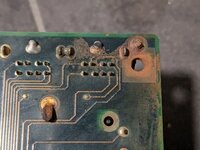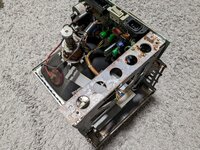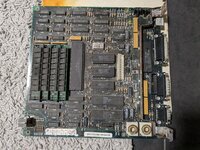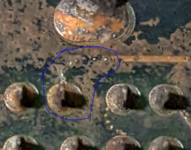Hi all,
I need advice to work on this initially good looking Macintosh Plus.
From the outside it was in good shape but once opened I saw the corroded chassis (photo 2).
Logic board is pretty good (photo 3) except for the serial ports zone (photo 1. It is AFTER cleaning with vinegar & IPA).
The good news is it starts up all the way through the blinking "?" but I cannot test it further without keyboard & mouse...
From what you know and see can you tell me how bad it is and if I can salvage it ?
Thanks in advance !
I need advice to work on this initially good looking Macintosh Plus.
From the outside it was in good shape but once opened I saw the corroded chassis (photo 2).
Logic board is pretty good (photo 3) except for the serial ports zone (photo 1. It is AFTER cleaning with vinegar & IPA).
The good news is it starts up all the way through the blinking "?" but I cannot test it further without keyboard & mouse...
From what you know and see can you tell me how bad it is and if I can salvage it ?
Thanks in advance !




